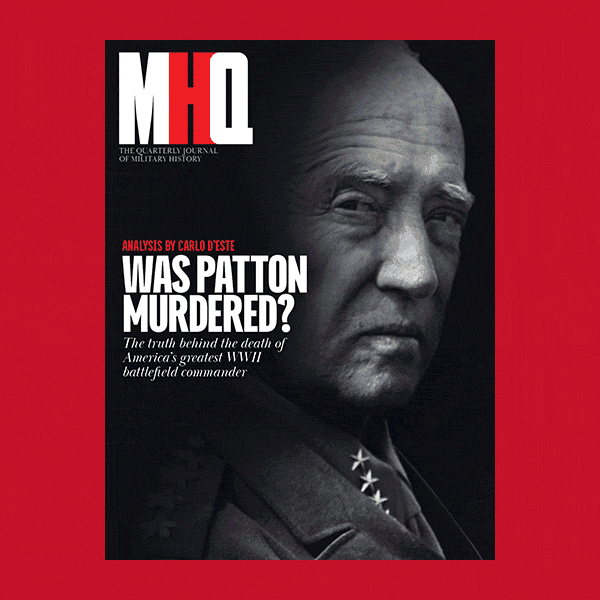Those who study warfare will inevitably run into the so-called “great man theory” of history. Simply put, it denotes the study of individual leaders and their abilities. In earlier times, scholars adhered to this school of thought as explaining the entirety of military history to the myopic exclusion of all other factors.
Over time the “great man theory” became less in vogue, and in the present day is looked upon by many scholars as nonsense; they choose to interpret military history purely through the lenses of more abstract factors such as society, technology, gender or economy, for example.
Give the ‘Great Men’ A Chance
While it goes without saying that military leaders can neither exist nor function in a void of social, technological or economic factors, I feel it is worth pointing out that the “great men of history”—notable male leaders, that is—deserve a fairer hearing.
Today, historical focus on notable men tends to be regarded in a dismissive manner, like something old-fashioned or awkward. It seems to me that this is partly due to the fact that the leaders being studied are men, and mostly because many people have apparently lost belief in the potency of individual human achievement. New trends in scholarship suggest that there has been too much focus on men in war history altogether. That is a gross oversimplification. While it is true that the roles of women have been overlooked, that does not make the achievements of men in military history any less deserving of attention.
Importance of Leadership
What is manifest in the lives of the “great men” is a quality universal to all human beings: the power of the individual to change world events. Social factors and technology make for interesting studies but these arenas do not shape themselves. People need leaders, and leaders don’t simply materialize out of nowhere. They come from among us. It is worth looking at who they were, what they did and how, and above all, whether we consider them to have been effective or not. Only by doing so can we educate ourselves.
Why is such an education important? The world is suffering from an acute leadership crisis. I believe there is currently a dearth of good male role models for young people. This deficit is real and troubling. However, there is another critical factor producing this discord. There is a complete lack of focus and discussion in society on the qualities that make good leaders and on the true potential of individuals.
Political and popular culture today encourage us to think in terms of groups with rigidly codified principles of belonging that seem to predestine our behavior, instead of encouraging us to recognize our individual ability to choose our own destiny and change the world around us.
Need For Future Leaders
This magazine contains a diverse array of military leaders. They were and remain controversial. Whether we decide to admire or dislike them, their actions are worth studying. We at Military History Quarterly (MHQ) invest time in evaluating leadership. In my book “Bernard Montgomery’s Art of War,” and series about Erwin Rommel, I analyze these two battlefield captains. My colleague Jerry Morelock has delivered a masterful study of military leadership in his excellent book, “Generals of the Bulge: Leadership in the U.S. Army’s Greatest Battle,” which tackles competent and incompetent leadership in one of the U.S. Army’s most complex battles. We believe these studies will be of use to future leaders.
It is a fallacy to think that the destinies of “great men” of military history, or leaders of any kind, are written in the stars and that we who read about them are mere mortals who have no hope of ever changing the world for the better. I close with an excerpt from the poem, “The Man From the Crowd,” by Sam Walter Foss. The poem is worth reading in whole; in it, Foss illustrates how people tend to fall into set patterns of behavior, while a leader will show willingness to break the mold and stand out to meet a challenge or fulfill a call to action.
He reminds us that the world needs great men. So let us not hesitate to continue to study and reflect on the lives, strengths, weaknesses and decisions of notable men in military history.
“Men seem as alike as the leaves on the trees,
As alike as the bees in a swarming of bees;
And we look at the millions that make up the state
All equally little and equally great,
And the pride of our courage is cowed.
Then Fate calls for a man who is larger than men—
There’s a surge in the crowd—there’s a movement—and then
There arises a man that is larger than men—
And the man comes up from the crowd.…
And where is the man who comes up from the throng
Who does the new deed and who sings the new song,
And makes the old world as a world that is new?
And who is the man? It is you! It is you!”





